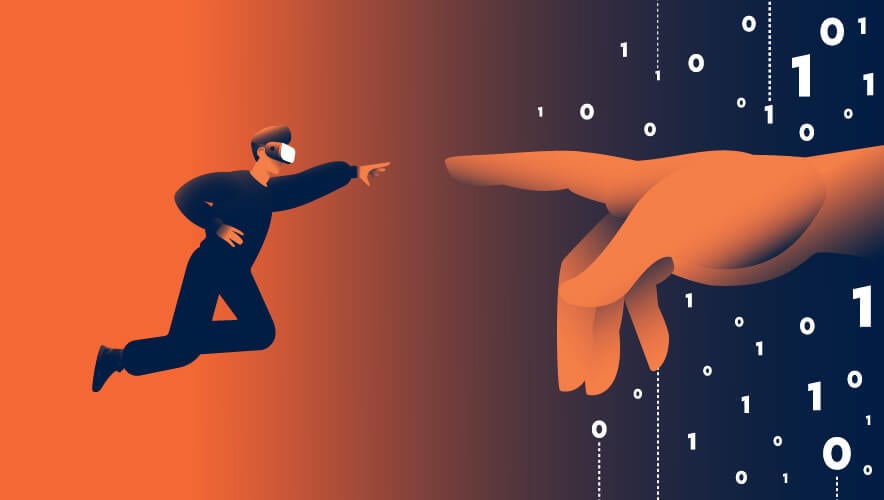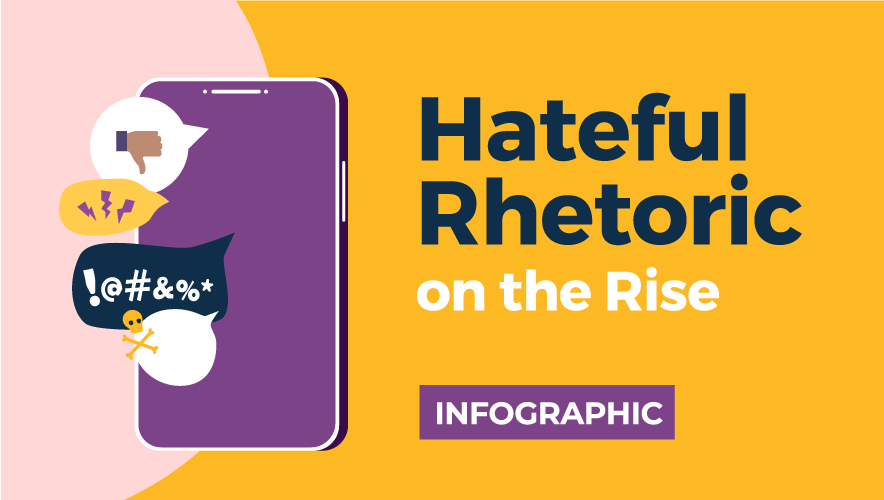The Future of Corporate Security: A Fusion of Innovation and Expertise in 2033
Corporate security has come a long way since the days of security guards and CCTV cameras.
By 2033, we will enter a new era of corporate security where a wide range of innovative tools and strategies will be at our disposal, from advanced robotics to cutting-edge surveillance systems.
To understand what corporate security will look like in 2033, we must first reflect on the significant events and developments that have shaped the security landscape from 2013 to 2023.
Bridging the Gap: People, Processes, and Technology
There are three key pillars in corporate security: people, processes, and technology. In the future, they will play an even more vital role in addressing the complex challenges that await us.
People: Adapting to a Changing Landscape
The demographics of the workforce are changing. The influx of Millennials into management and executive roles, and Zoomers into the workforce is invigorating the aging population, bringing fresh perspectives and a tech-savvy approach.
The once-dominant Baby Boomer generation is now making way for younger cohorts who bring a deep-rooted commitment to technological advancement, and a unique ethos that places a premium on social responsibility and sustainability. Millennials, characterized by their adaptability and affinity for innovation, are redefining leadership in a world increasingly shaped by rapid technological changes.
At the same time, Zoomers, born and raised in the digital age, are entering the professional arena with a natural grasp of technology, reshaping how we work and interact. This intergenerational synergy invigorates the workforce, ushering in an era where collaboration, diversity, and the seamless integration of technology are critical drivers of success.
The most important working skills will be centered on creativity, collaboration, and practicality.
The most important working skills will be centered on creativity, collaboration, and practicality due to the unique challenges and opportunities security practitioners face in the modern world. Millennials and GenZers are at the forefront of rapidly evolving technologies and global issues, requiring them to think creatively to solve complex problems. Collaboration is vital in a world marked by diversity and interconnectedness, allowing people to leverage different perspectives and work effectively in teams. Practicality ensures that individuals’ creative ideas translate into tangible solutions and innovative strategies. In an era defined by entrepreneurship, sustainability, and a dynamic job market, these skills empower Millennials and Gen Z to adapt, lead, and thrive professionally and personally.
These shifts will redefine the skill sets needed for success in the corporate security industry.
- Future Workplaces, Worker Skills, and Education
- The gig economy will dominate the corporate security landscape, with more than —creating a $455 billion market by 2030.
- Top skills will revolve around creativity, collaboration, and practicality.
- Corporate Security education will transition to an online, aligning with the preferences of the younger workforce. AI will personalize and tailor educational content to an individual's need, providing data-driven insights to improve and adjust learning to be more effective.
- The gig economy will dominate the corporate security landscape, with more than —creating a $455 billion market by 2030.
- Challenges and Opportunities
- Addressing the widening skills gap while focusing on essential by GenZ. Soft skills will be critical for GenZ; while researchers state Millennials are confident, team-oriented, and high achievers, GenZ was shaped by helicopter parenting, and they are digital natives, only knowing an online world connected by social media. GenZ will need help making human connections, developing collaborative relationships, and understanding authority, direction, and leadership.
- Strategically managing the supernova as all Baby Boomers reach 65+. By 2030, over 70 million people will be over 65 in the United States and could be leaving the workforce, known as the Silver Wave. Globally, it will be much worse as 693 million Baby Boomers will reach retirement age in 2030.
- Using technology and changing our operational mindsets to stay ahead of people shortages.
- Addressing the widening skills gap while focusing on essential by GenZ. Soft skills will be critical for GenZ; while researchers state Millennials are confident, team-oriented, and high achievers, GenZ was shaped by helicopter parenting, and they are digital natives, only knowing an online world connected by social media. GenZ will need help making human connections, developing collaborative relationships, and understanding authority, direction, and leadership.
Processes: Agility and Resilience in a Dynamic World
Urbanization, migration, and environmental factors are reshaping the landscape. Sustainable and eco-friendly business practices are imperative, demanding agile processes and resilient strategies.
Technological advancements are at the forefront of the future of corporate security.
As people move from rural locations to go to college or find jobs, they are less likely to return to the farm or ranch; therefore, a mega-metropolis will be the city of the future, similar to Hong Kong and New York City. The mega-metropolis of the future will be big cities that are geographically separated but close enough to trade with each other, such as the Texas Triangle of Austin, San Antonio, and Houston, or Los Angeles-Long Beach-Anaheim-San Diego, or London-Paris-Brussels.
- Security Practices of Tomorrow
- Combustion vehicles will face stringent regulations, accelerating mass EV adoption and requiring autonomous driving for patrol vehicles.
- AI and machine learning will facilitate predictive behavior analysis and anomaly detection across various domains.
- Biometric authentication and facial recognition will be ubiquitous for seamless security.
- Combustion vehicles will face stringent regulations, accelerating mass EV adoption and requiring autonomous driving for patrol vehicles.
- Facing the Challenges
- Navigating the paradigm shift caused by disruptive natural disasters and extreme weather events diverts security services from traditional missions.
- Addressing the escalating concerns regarding mental health crises and the need for tailored and safe approaches for corporate security officers.
- Navigating the paradigm shift caused by disruptive natural disasters and extreme weather events diverts security services from traditional missions.
Technology: The Catalyst for Transformation
Technological advancements are at the forefront of the future of corporate security. From security robots to AI-driven training, our reliance on technology is unparalleled.
- The Technological Landscape
- Autonomous drones and robots will become pivotal components employed for patrols, inspections, and emergency response due to people shortages.
- Advanced sensors and AI capabilities will enhance the efficiency and effectiveness of security bots.
- Internet-connected uniforms and mobile GSOC will revolutionize how corporate security professionals operate. Uniforms that provide the wearer with audio and video feeds from all IoT (Internet of Things) devices will empower security officers to respond and mitigate risk to people and property without waiting to be dispatched.
- Autonomous drones and robots will become pivotal components employed for patrols, inspections, and emergency response due to people shortages.
- Meeting the Challenges
- Training security officers with virtual reality simulations to prepare for real-life situations effectively.
- Balancing technology integration with the human touch ensures security officers possess excellent communication and problem-solving skills.
- Training security officers with virtual reality simulations to prepare for real-life situations effectively.
Shaping a Safer Future: The Symbiosis of Humans and Technology
The current landscape of our global economy is dynamically changing corporate security, creating the need for a technological renaissance. By 2033, robots and will protect our perimeters while highly trained security personnel analyze data and respond to threats. The fusion of innovation and expertise will redefine the norms of corporate security, paving the way for a safer, more secure future.
As we stand on the precipice of this transformative era, we can confidently declare that the future of corporate security is an exciting fusion of human intuition, cutting-edge innovation, and a seamless integration of technology.
We extend an impassioned call to all corporate security leaders: let us stand united in embracing innovation, open-mindedness, and a customer-centric approach. The future of corporate security hinges on our willingness to adapt, collaborate, and continue to place people at the core of our strategies. As we envision a future where cutting-edge technology harmoniously blends with human expertise, let us pioneer a paradigm shift in the security landscape. Design technology that connects back to the human.
Together, we can create a world where safety is not just a mandate but a testament to our unwavering commitment to safeguarding lives and assets. Let us shape a future where the human touch, resilience, collaboration, determination, foresight, and relentless pursuit will lead us toward a brighter and safer tomorrow for all.
Carlos Francisco, CPP, is a regional security leader at Meta with more than 24 years of leadership in large-scale corporate security management, emergency management, critical infrastructure, law enforcement, loss prevention, safety, sports venues, and major global events. He is the author of So, You Want to Get into Corporate Security?
Scot Walker, PCI, is the director of investigations and protective intelligence at the Paper Excellence and cofounder of Corporate Security University, which provides online training and certification for security professionals. Walker is also a consultant for INTERPOL’s Synthetic Media Expert Group and co-founder of the Private Investigations firm, Walker & Associates LLC.











